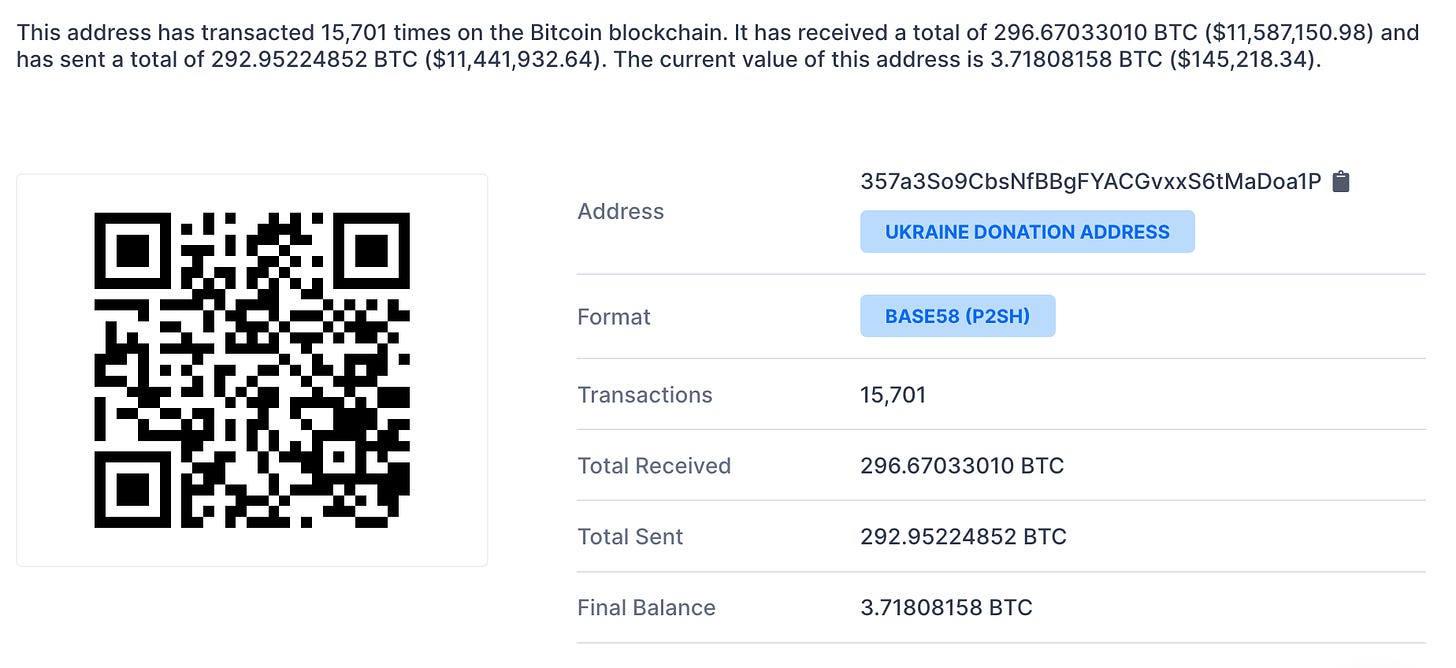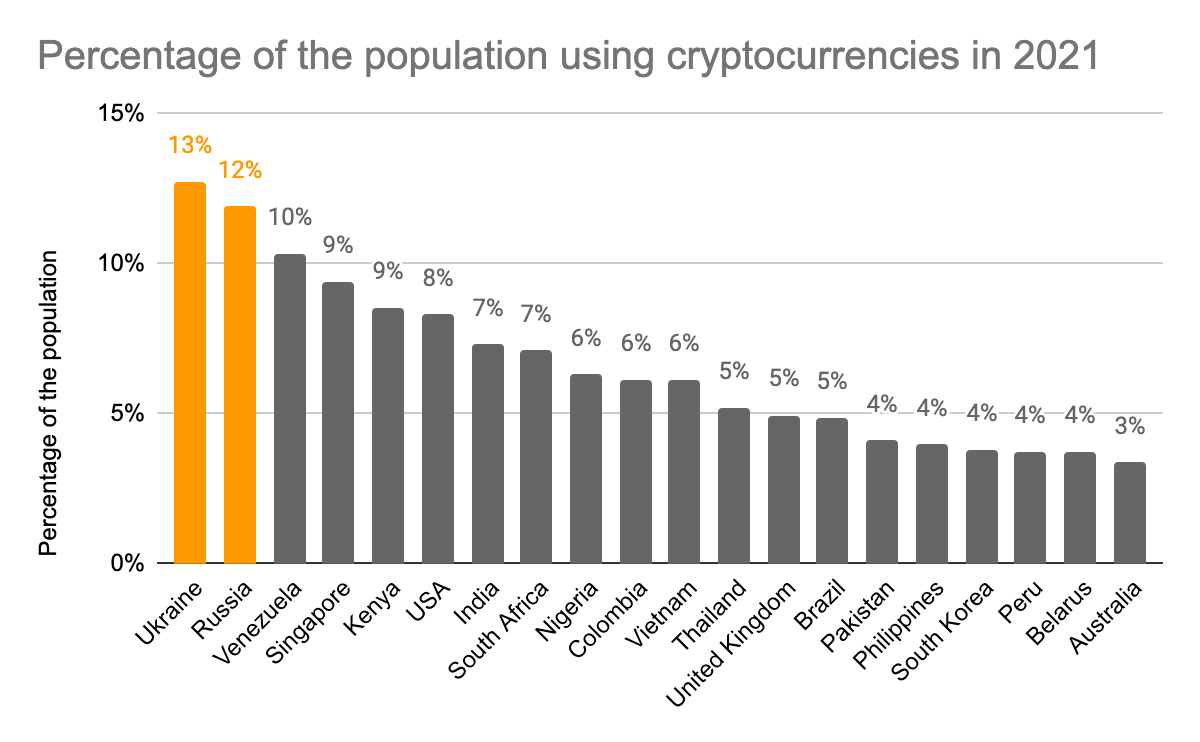I returned to my apartment in Tallinn on Friday, 25th February, a day after Russian troops launched a full-scale invasion of Ukraine in the biggest European conflict since World War II. I buzzed my friend, a Nigerian student in Tallinn, to tell her of my return and she echoed the fresh concern that many people, especially foreigners, in former soviet states had grown since the news of the Russian invasion of Ukraine hit the airways.
There is so much uncertainty about the future, reflected now in the mellow status of crypto prices. In contrast to the present, November 2021 was such an obliviously happy time in the crypto-sphere. As I followed the news of the war in Ukraine, I thought oh shit, they might come for crypto.
Hey there,
Welcome to the ninth issue of 2 cents on a coin!
Today, my 2 cents are on war and crypto and the reason why blockchain technology is like any other form of technology, including the clothes on our backs.
They have come for crypto so many other times. In 2018, founding CEO of PayPal, Bill Harris, told VOX: “Cryptocurrency is best suited for one use: Criminal activity”
and even now, influential politicians like US Senator, Elizabeth Warren continue to make such statements:

So when I thought about the possible impact of this war on the reputation of cryptocurrencies, I worried that all it took was for the Russian regime to use cryptocurrencies as a channel to fund the aggression against Ukraine for the world to buckle down to the calls for swift and fatal clamp down on all forms of decentralized finance.
As we have seen in the past weeks, blockchain technology and the cryptocurrencies it supports have been a powerful channel for financial support to Ukraine. In the midst of the crises, Ukraine shared calls for donations through Bitcoin, Ethereum, and USDT:

…and thousands of people answered. The Bitcoin address has received more than $11 million worth of Bitcoin at the time of writing.
So is crypto bad because criminals could use it? or good because it could be a channel for emergency funds during wartime? It’s neither. The logic behind the question is as faulty as asking whether oxygen is good or bad based on who breathes it or whether clothes should have pockets based on what could be hidden there. We need rules to reign in bad actors but ill-considered, broad strokes of censorship could have a net negative effect on society. The problem is we are not good at measuring net effects.
Most guns used to perpetuate crimes are hidden in trouser or jacket pockets so do we ban all clothes from having pockets? Kidnappers put victims in vehicle trunks so do we create regulations for Toyota and Ford to build trunk-less cars. As absurd as it sounds, that’s the same kind of logic used in “crypto facilitates criminal activity” argument.
Crypto has been a hedge against inflation for nationals within unstable economic regimes - Nigerians, Vietnamese, Venezuelans, Ukrainians, Russians…. as we see in Triple A’s global crypto adoption ranking for 2021 (NB: ranking methodology is different from Chainalysis’)
Crypto is open to all and I think should remain so, or we risk throwing the baby out with the bathwater.
What are your 2 cents on crypto in times of war? and what is your take on how to censor bad actors within decentralized finance?
Please leave a comment below.




